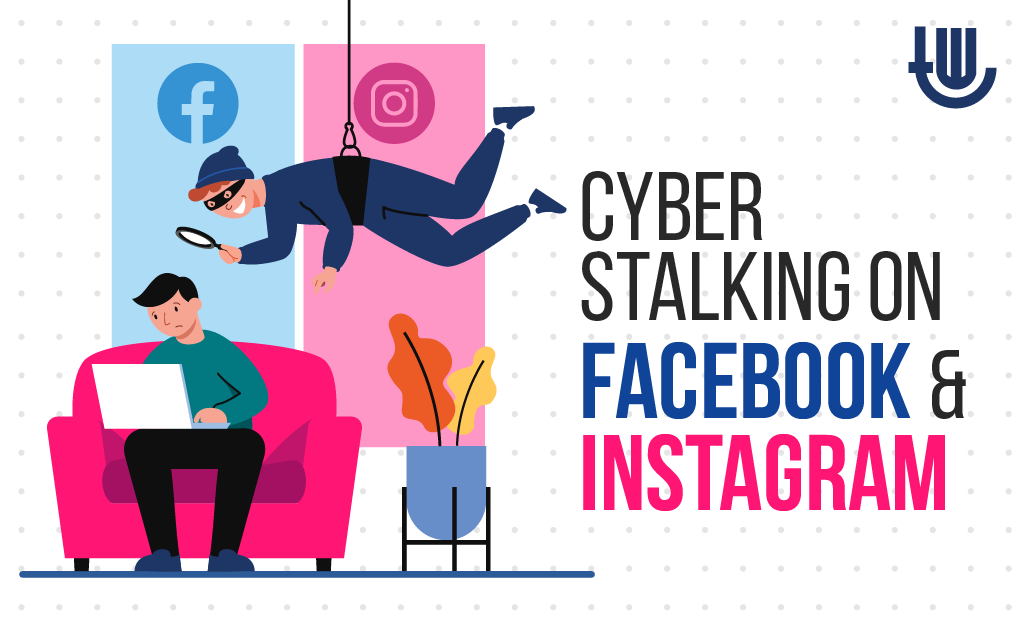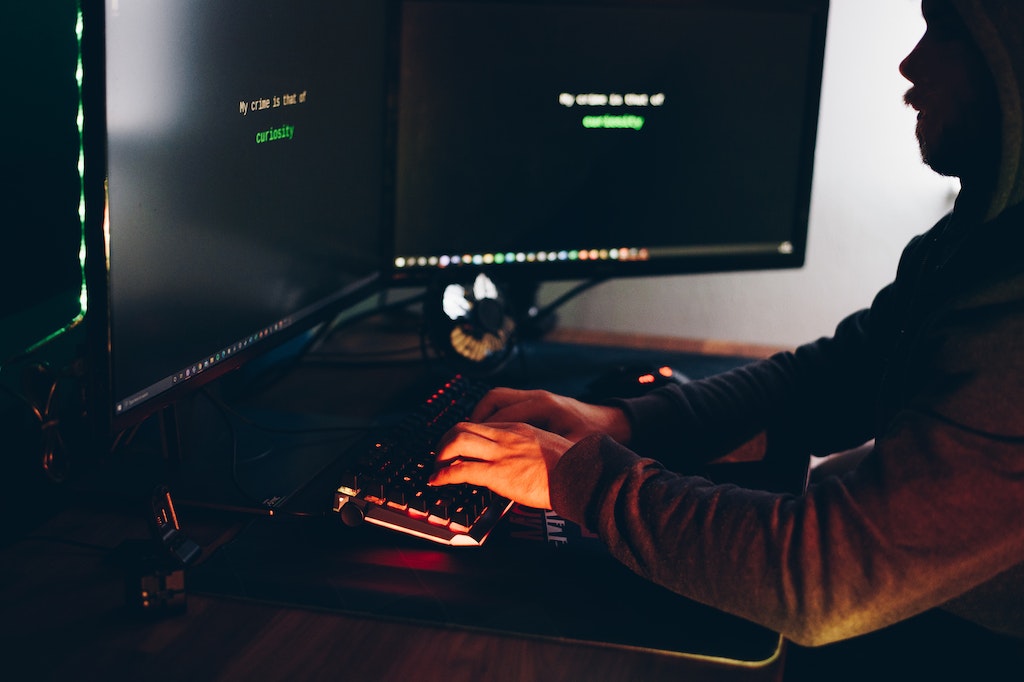
The internet turned out to be a revolutionary blessing in recent times. But there’s been multiple alarming instances where people exploited this boon. Let’s talk about stalking turned virtual. Everyone has that one person in their messaging section on Facebook and Instagram who misbehaves and crosses the line. And with multiple breadcrumbs left in the cyberspace by users, stalkers take it as a perfect opportunity to take advantage and gather details of their victims. This article talks about cyberstalking on Facebook and Instagram. Read on to know more.
Cyberstalking on Facebook and Instagram
Cyberstalking on Facebook and Instagram, or any social media platform for that matter, involves people with malicious intents trying to trace your footprints on the internet activities and engage in a pattern of harassment.
Cyberstalking can be a psychological condition of being obsessed, likely due to other mental illnesses, making their victims anxious, upset, feared, and worried.
Multiple scenarios of cyberstalking have proved to be fatal. While checking out someone’s profile is not stalking, constantly being obsessed about their activities online might be a sign.
What do stalkers look for in your accounts on Facebook and Instagram?

Following are the aspects that cyberstalkers can look for to use against the victim:
Photos and Videos
Your photos, videos, and other media are the key elements the stalkers look for. It might reveal your address, interiors, the car you own, places you head out in the nearby locality, and other information that can help them narrow down your personality, character, and practically ‘read through’ you.Documents
People often post their mark sheets, travel tickets, and other relevant documents that can reveal much information about themselves. Cyberstalkers need not always seek personal gains from your profile; another category of them also look out for information that can propagate to social engineering and financial scams.Interests
Stalkers trying to understand your personality might also see who you actively follow on social media and similar likes and interests. The books you read, hobbies, or videos you like might reveal details of your taste in certain things.Friends and social circle
Stalkers might try to learn more about you by talking to or befriending your close ones online. They might extract sensitive information or life events not present on the internet. Further, in serious cases such as blackmailing, they might threaten regarding ‘secret’ information acquired through such friends and social connections.
Extreme cases of Cyberstalking
Psychologically, stalkers tend to gain pleasure from the harmful acts intended for their victims to make their lives miserable. Following are the extreme outcomes of cyberstalking if victims don’t act on it.
Physically stalking and lying
Stalkers that wish to befriend their victims and stay in their life, often harmlessly, might go to the extremes of cyberstalking to match their likes and interests. This can involve lying to win the person’s trust and friendship.Blackmailing
Access to someone’s details, such as address and personal information acquired via excessive cyberstalking and computer skills, can lead to blackmail. The perpetrator might ask for money or ‘favors’ that can lead to the victim getting in trouble.Morphing and Deepfaking
Blackmailing via morphing and deepfaking is another threat possessed by stalkers when they have access to your media over Facebook and Instagram.
Morphing and deepfaking involve creating obscene and often false media, having your face as an identity. People falling to this particular case of cyberstalking often suffer deep emotional trauma.Deploying RATs (Remote Administration Tools) and Spying
Always look out for some red flags in your mobile phones since cyberstalking doesn’t always mean spying only via social media. A remotely controlling software in your device can extract all the information such as messages, calls, passwords, etc.Kidnapping and Ransom demands
Cyberstalking can lead to extremely hazardous cases, such as kidnapping and demanding ransom. Every little detail on your Facebook and Instagram can add up to understanding your whereabouts, and cyberstalkers who intend to seek financial gain might take advantage of this.Being profiled and impersonation
Pretending to be the victim using or passing your personal information without consent is a classic case of impersonation. For this, the cyberstalker needs to know your details, interests, hobbies, and pictures. Such attempts are made for catfishing and fraud, such as asking for money from your social circle under your name.
Safeguard yourself from Cyberstalking on Facebook and Instagram
- Make sure to add trusted people only.
- Avoid clicking on any links.
- Limit sharing on social media channels.
- Enabling strong password policies and multi-factor authentication.
- Beware of oversharing with your friends and circle that aren’t very close.
- Lookout for red flags in your device, such as overheating, scattered audio, screens and passwords changing on their own, etc. Your device is likely infected.
What to do if I’m a victim of Cyberstalking?
If you find yourself in a situation of being harassed by a cyberstalker in India, you can file a legal complaint against the stalker in your nearest cyber cell or the local police station.
Else, even the National Cyber Crime Reporting Portal will accept a complaint that includes cyberstalking.
Towards the conclusion
Cyberstalking doesn’t only invade privacy and threaten people’s lives but also tends to take an emotional toll on the victim. It is important to remember that staying silent is only encouraging the stalkers. Stalking is a serious criminal offense; it is time to address it seriously. Seek the help of law enforcement and counselors for support and never suffer. Hope you find this article helpful. Stay safe!

Author Bio: This article has been written by Rishika Desai, B.Tech Computer Engineering graduate with 9.57 CGPA from Vishwakarma Institute of Information Technology (VIIT), Pune. Currently works as Cyber Threat Researcher at CloudSEK. She is a good dancer, poet and a writer. Animal love engulfs her heart and content writing comprises her present. You can follow Rishika on Twitter at @ich_rish99.